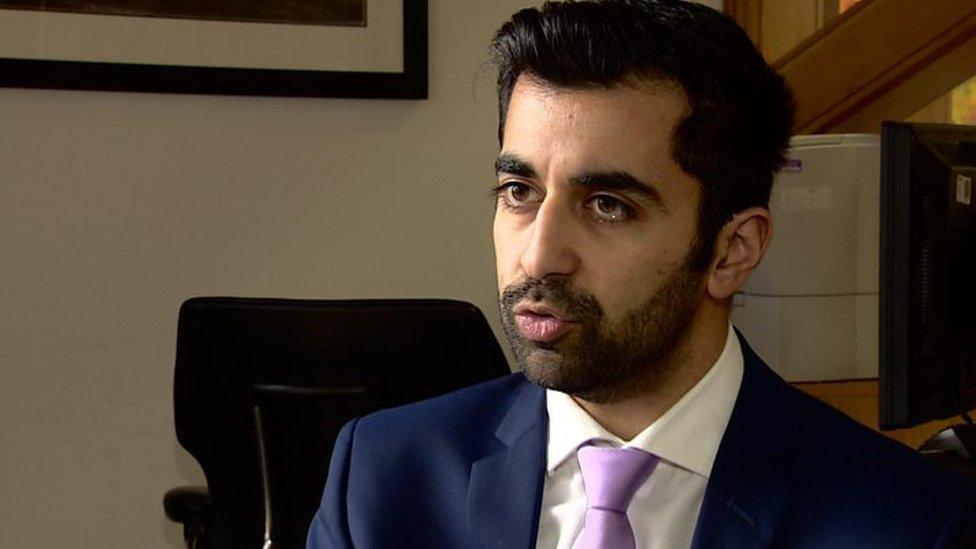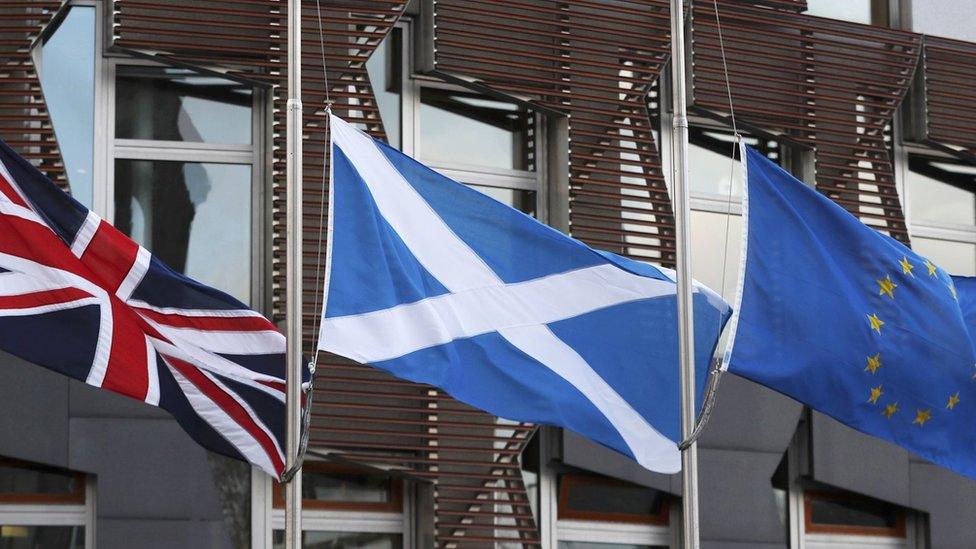Humza Yousaf: Ditching EU security deals 'will help criminals'
- Published

Mr Yousaf fears criminals could exploit the UK no longer being a part of measures such as the European Arrest Warrant
Losing access to European security arrangements post-Brexit "will only benefit criminals", Scotland's justice secretary has said.
Humza Yousaf said no future UK procedures would be as effective as those available as a member of the EU.
He told the BBC's Good Morning Scotland programme this was regardless of what plans were made for a no-deal outcome.
The UK government said "the continued safety and security of both UK and EU citizens is of paramount importance".
Mr Yousaf's views echoed those of Metropolitan Police deputy assistant commissioner Richard Martin.
Mr Martin recently warned that criminals could potentially exploit the UK no longer being a part of measures such as the European Arrest Warrant.
Mr Yousaf said: "Anything that is a move away from what we currently have, that is a dilution of what we have, the only people that will benefit will be those that are trying to escape from the law.
"It doesn't matter how many preparations we make, the UK government makes, the Met police force or indeed Police Scotland make."
Extradition treaty
Mr Yousaf recounted a case from 2012, when a foreign national who had committed a murder in Scotland and had absconded to Europe was apprehended due to a European Arrest Warrant within five hours.
The justice secretary said that the process of catching criminals after the UK leaves the EU could take significantly longer.
"We can be as stringent as we want, we can be as robust as we possibly want, and we are doing that, but if we don't have an extradition treaty with a country, that could take over and above a year," said Mr Yousaf.
"If we have an extradition treaty with a third country, in a bilateral agreement, it would take months and months."

Mr Yousaf also said that although the UK would still be a member of Interpol, that would not sufficiently make up for the loss of Europol membership.
"I don't doubt that countries will come with goodwill, but even so, nothing is as good as the European Arrest Warrant, nothing is as good as Europol," he said.
UK minister for policing and fire, Nick Hurd, said the government was "working intensively with operational partners on contingency preparations should they be necessary in a no-deal scenario".
'Tried and tested'
These included funding the new International Crime Coordination Centre.
Mr Hurd added: "The contingency plans involve moving co-operation with EU Member States to tried and tested alternative mechanisms, including Interpol and Council of Europe Conventions.
"Whilst we have been clear that these would not be like-for-like replacements, they are already used for police and judicial co-operation with many non-EU countries.
"Our primary objective, however, remains to secure a deal that protects mutually-beneficial capabilities for both the UK and the EU Member States."